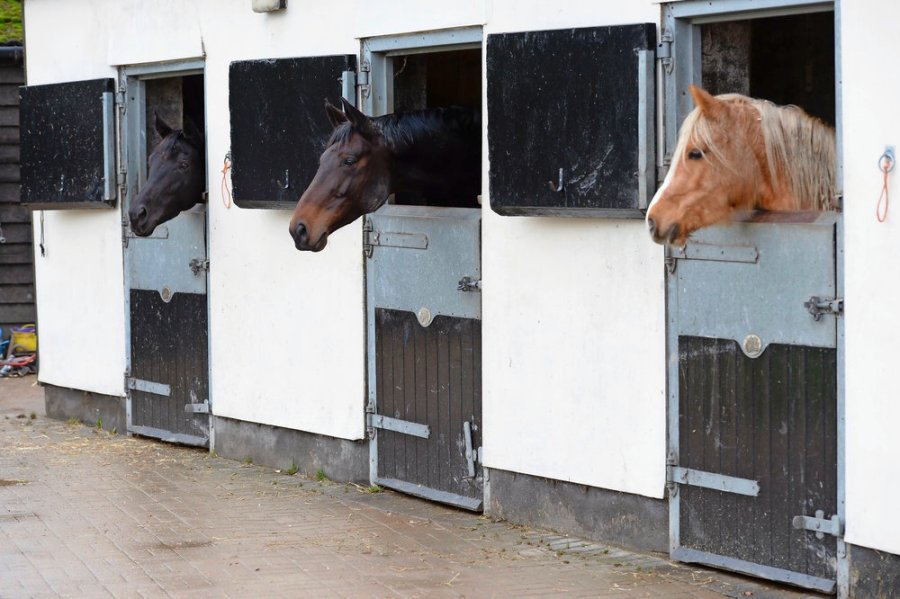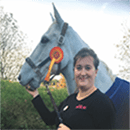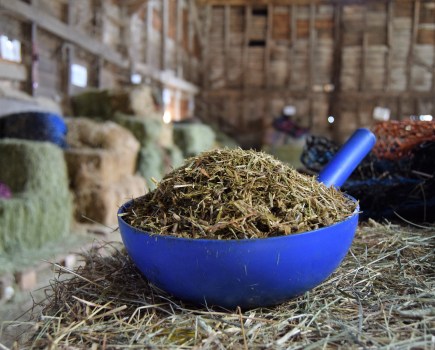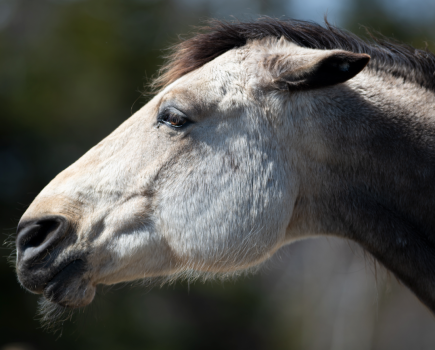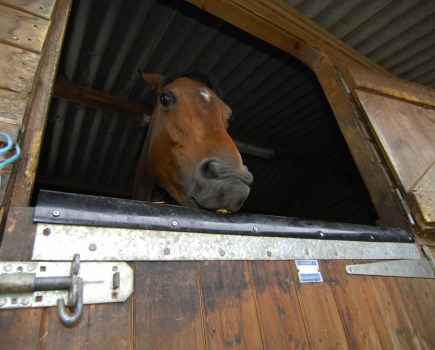There are three crucial things that every horse owner should know about horse flu (equine influenza): it is highly contagious and can travel up to 5km in the air; it is also easily passed on to horses via human touch and clothing. Every horse is at risk of contracting equine flu and, according to Richard Freeman from insurance broker Lycetts, having an unvaccinated horse may even invalidate any horse health insurance policy you have if they become unwell with equine flu. “It is commonly a condition that the insured horse must be vaccinated,” he says.
Yet in 2019 it was estimated that less than 50% of the UK’s horses were not vaccinated against flu, and to date many horses remain unvaccinated. Equine flu is transmitted by contact with the virus — either from infected horses, in the air, or via clothes, tack and tools. So even if your horse never leaves the yard, they are still at risk of exposure to the virus. Signs of infection appear as quickly as two days after initial exposure, and horses remain infectious for up to 10 days following the onset of symptoms.
Horse flu is rarely fatal, but some — youngsters, veterans, sick horses and mares in foal, for example — are more vulnerable and it is so contagious that any outbreak will trigger yards, competition centres and sporting venues to close down in an attempt to contain it. While no vaccine is 100% effective, immunisation is effective in limiting the spread of the virus and decreasing the severity of infection. So if your horse isn’t currently vaccinated, make arrangements now.
What are the signs of horse flu?
Horses suffering with equine flu may show any of the following signs:
- High temperature
- Coughing
- Snotty nose
- Enlarged glands (under the lower jaw)
- Swollen or sore eyes
- Lethargy
- Loss of appetite
- Swelling in the lower legs
If you notice any of these in your horse, consult your vet. If you see any symptoms or your horse has been in contact with infected horses, isolate them and call your vet. Official advice is to not travel to competitions or lessons if your horse is showing symptoms or has been in contact with infected horses.
Equine flu and Covid-19
Thanks to the Covid-19 pandemic, people’s understanding of infectious disease has improved massively, and this is a good thing when it comes to vaccinating for things like equine flu and tetanus. British horse owners faced a devastating flu outbreak in January 2019, when a new strain of equine flu was found in the UK. It was the highest recorded numbers of equine influenza for many years and it brought racing and the competition circuit in general to a halt.
The UK saw the highest number of outbreaks of any country, possibly due to the fact that the UK has a much lower level of vaccinated horses in comparison to Europe. Outbreak reports reduced from August, with no outbreaks confirmed in September and only one confirmed outbreak in the UK in October involving an imported horse.
“There were a couple of cases at the start of 2020, but that is normal,” explains equine vet David Rendle MRCVS, president of the British Equestrian Veterinary Association (BEVA) in 2022-23. “Some vet practices did stop vaccination for a short period [due to lockdown in March], which may have caused some problems for people at the end of their vaccination programme, but that has been largely sorted now.”
Are your horse’s booster jabs are up to date?
The worry, David says, is that people don’t keep up vaccinations.
“It is frustrating that historically horse owners haven’t appreciated the value of vaccination, as the scientific evidence is clear in that the only way to effectively protect the horse population is to have a high level of vaccination,” he says.
“There are certain sectors where the rate of vaccination isn’t high, and those horses are at higher risk of having more problems and potentially dying as a result. These sectors also undermine the hard work put in by other sectors of the industry.
“Hopefully people’s understanding of infectious disease has improved as a result of Covid and they’ll see that vaccination is the only way to control a highly infectious disease in a constantly moving population.”
There was a shortage of equine flu vaccines in 2022, but expert advice by the end of that year was to revert to bi-annual booster jabs for horses who had already received their primary course of equine flu vaccinations four weeks apart. Keeping up the six-monthly vaccinations is still the recommended choice, but a yearly vaccination is infinitely better than nothing. Of course if you compete your horse, you will need to make sure they are vaccinated in line with the governing body’s requirements. Consult the rulebook to find this information.
“Twice a year is much better at protecting the population which is why performance horses have now been moved toward six-monthly vaccinations,” says David. “We know it is unrealistic to expect everyone to vaccinate six-monthly, but everyone should vaccinate once a year as a minimum and then administer additional boosters if they are moving and mixing their horses. We need to act together to keep our horses safe.”

